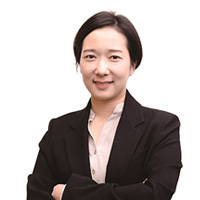
The English-language edition of a biography of Park Seo-bo, a contemporary artist who led the “dansaekhwa” movement of the 1970s, was recently published online as an open-access publication at www.parkseobo.life. Dansaekhwa refers to a style of Korean abstract painting that accompanies a process of repetition and meditation.
The original biography, “Park Seo-bo’s Art&Life,” was written in Korean by the artist’s daughter Park Seung-sook, an art therapist, and published in 2019.
The open-access publication in English aims to help international readers better understand the artist, a leading member of the dansaekhwa movement, which is regarded as South Korea’s first collective art movement.
Born in 1931, Park lived through the 1910-45 Japanese occupation, the 1950-53 Korean War, and the turmoil of industrialization. He was also a rebel who criticized the older generation and ran campaigns against the National Art Exhibition, initiating Korea’s “art informel” movement, influenced by artists in post-World War II Europe.
Park Seung-sook said she had tried to present the artist’s humanity in a multifaceted manner, rather than simply highlighting his achievements, while also striving to maintain distance when describing her artist father.
“Thanks to ‘Dansaekhwa fever,’ dad’s art continues to be popular on the international stage. He has managed to remain productive and relevant as a global artist deep into the twilight of his career, but that’s another story completely,” she wrote. “Any truth of dad’s identity as an artist is best found in the struggle, sacrifice, and mistakes he made trying to understand what that meant.”
The book consists of four chapters: “The Search for Oneself (1931-1958),” “Exploiting Opportunities (1958-1961),” “Forging His Own Path (1961-1981)” and “To Discover the Beauty of Color (1980-2009).”
By Park Yuna (yunapark@heraldcorp.com)
The original biography, “Park Seo-bo’s Art&Life,” was written in Korean by the artist’s daughter Park Seung-sook, an art therapist, and published in 2019.
The open-access publication in English aims to help international readers better understand the artist, a leading member of the dansaekhwa movement, which is regarded as South Korea’s first collective art movement.
Born in 1931, Park lived through the 1910-45 Japanese occupation, the 1950-53 Korean War, and the turmoil of industrialization. He was also a rebel who criticized the older generation and ran campaigns against the National Art Exhibition, initiating Korea’s “art informel” movement, influenced by artists in post-World War II Europe.
Park Seung-sook said she had tried to present the artist’s humanity in a multifaceted manner, rather than simply highlighting his achievements, while also striving to maintain distance when describing her artist father.
“Thanks to ‘Dansaekhwa fever,’ dad’s art continues to be popular on the international stage. He has managed to remain productive and relevant as a global artist deep into the twilight of his career, but that’s another story completely,” she wrote. “Any truth of dad’s identity as an artist is best found in the struggle, sacrifice, and mistakes he made trying to understand what that meant.”
The book consists of four chapters: “The Search for Oneself (1931-1958),” “Exploiting Opportunities (1958-1961),” “Forging His Own Path (1961-1981)” and “To Discover the Beauty of Color (1980-2009).”
By Park Yuna (yunapark@heraldcorp.com)




![[Today’s K-pop] Blackpink’s Jennie, Lisa invited to Coachella as solo acts](http://res.heraldm.com/phpwas/restmb_idxmake.php?idx=644&simg=/content/image/2024/11/21/20241121050099_0.jpg&u=20241121172748)













